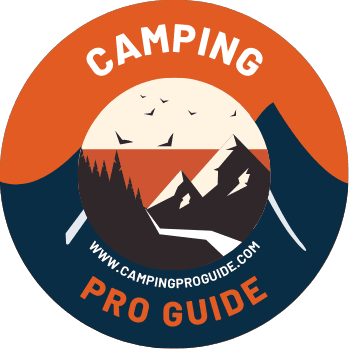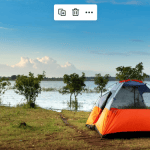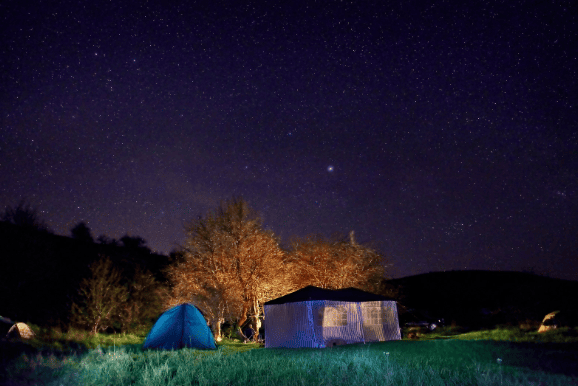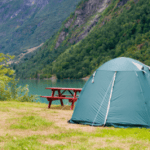
Have you ever wondered what it would be like to get lost in the great outdoors? While camping can be an exciting adventure, getting lost is a possibility we rarely consider. But don’t worry! This article is your ultimate guide to staying safe and finding your way back if you ever lose your path while camping.
Understanding the Risk
First, it’s important to understand that getting lost can happen to anyone – even experienced campers. Forests can look similar in every direction, and trails can be misleading. That’s why being prepared is key.
Preparation is Key
Before you set out on your camping trip, it’s crucial to prepare. Here are some essential tips:
- Learn Basic Navigation: Understand how to read a map and use a compass. Nowadays, GPS devices and smartphones have navigation apps, but they can fail in remote areas, so old-school skills are still vital.
- Inform Someone: Always let someone know where you’re going and when you plan to return. This way, if you don’t show up on time, they’ll know to alert authorities.
- Pack Essentials: Carry a survival kit that includes a whistle, a mirror, a flashlight, extra food and water, a fire starter, and a first-aid kit.
Staying Oriented
While you’re out and about, keep these pointers in mind:
- Stay Aware of Your Surroundings: Pay attention to landmarks like rivers, mountains, or unique trees. These can be crucial in helping you find your way.
- Use Technology Wisely: If you have a GPS device or a smartphone, use it to mark the location of your campsite and check your progress regularly.
- Trail Marking: In unfamiliar territory, consider marking your trail with stones or sticks in a noticeable pattern. This can help you backtrack if needed.

What to Do If You Get Lost
If you find yourself disoriented, remember the acronym S.T.O.P.:
- S – Stop: When you realize you’re lost, stop moving. Panicking and moving hastily can make the situation worse.
- T – Think: Calm down and think about your situation. What landmarks did you last recognize? Can you retrace your steps?
- O – Observe: Use your map, compass, or GPS to try to determine your location. Look for familiar landmarks or features.
- P – Plan: Once you have a clearer idea of your location, make a plan. If you can’t find your way back, it might be best to stay put and wait for help.
Survival Tips While Waiting for Help
If you need to wait for rescue, follow these tips:
- Stay Visible: Find an open area where you are visible from the air and ground. Use bright clothing or a mirror to signal for help.
- Stay Warm and Dry: Use your extra clothes and build a shelter to protect yourself from the elements.
- Ration Your Supplies: Use your food and water wisely. If you’re low on water, try to collect rainwater or find a stream, but be cautious about water quality.

Creating a Safe Environment
In the event you are lost, creating a safe and sustainable environment is crucial:
- Build a Shelter: Protect yourself from the elements. Use branches, leaves, or even a tarp if you have one. Your shelter doesn’t have to be elaborate; it just needs to keep you dry and out of the wind.
- Start a Fire: A fire is not only a source of warmth but also a signal for help. It can also be used to purify water and cook food if necessary. Always follow safety protocols to prevent wildfires.
- Stay Hydrated and Nourished: Avoid eating anything you’re unsure about, especially mushrooms or berries. Stick to the food you’ve brought, and if you run out, remember that staying hydrated is more critical than eating.
Avoiding Hazards
While waiting for help or trying to find your way back, be aware of potential hazards:
- Wildlife: Know what kind of wildlife is in the area. Store your food properly to avoid attracting animals, and learn basic wildlife safety tips.
- Weather Changes: Be prepared for sudden weather changes. If you’re in a mountainous area, be aware that weather can change rapidly.
- Injuries: Avoid taking unnecessary risks that could lead to injury. If you’re injured, tend to wounds immediately with your first-aid kit.
Conclusion
Getting lost while camping can be a scary experience, but with the right preparation and knowledge, you can navigate your way out of it. Always prioritize safety, stay calm, and use your resources wisely. Remember, the wilderness is a beautiful place to explore, but it demands respect and preparation. So, gear up, stay smart, and enjoy your camping adventures with confidence!






